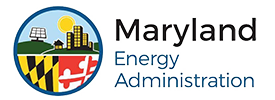The resources below are here to provide you with as much information as possible about zero emissions vehicle (ZEV) activity and developments at the State, County, City, and local organizational level.
HOA and Multi-unit Dwelling Resources
The Electric Vehicle Recharging Equipment for Multifamily Units Act went into effect on October 1, 2021. In summary, this act states that a condominium or homeowners association cannot prohibit or unreasonably restrict the installation or use of electric vehicle recharging equipment.
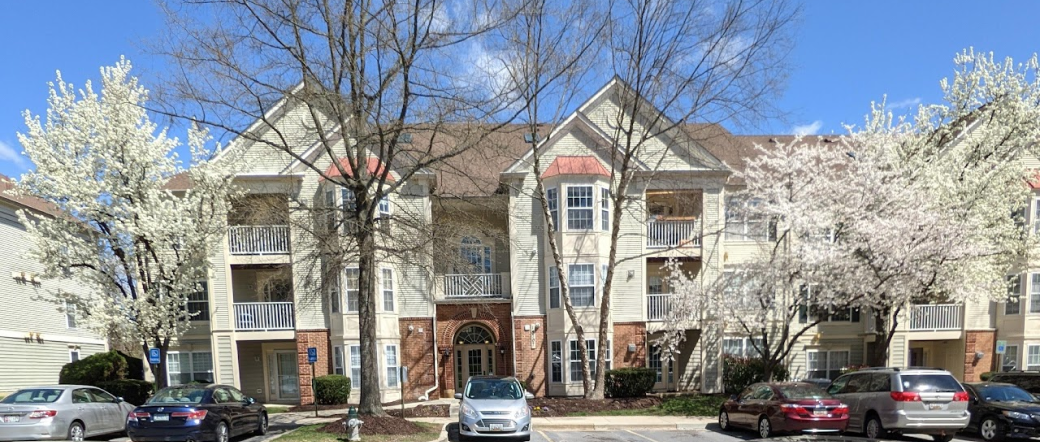
Fountain Hills HOA
EV Charging Station
The Fountain Hills Community is now home to an electric vehicle (EV) charging station located at 18701 Club Plaza Drive. Look for the EV Charging Station in the Condominium parking area below the Fountain Hills Pool. The FHC-ChargePoint EV Charging Station is operated by the Fountain Hills Condominium.
View the Fountain Hills HOA case study.
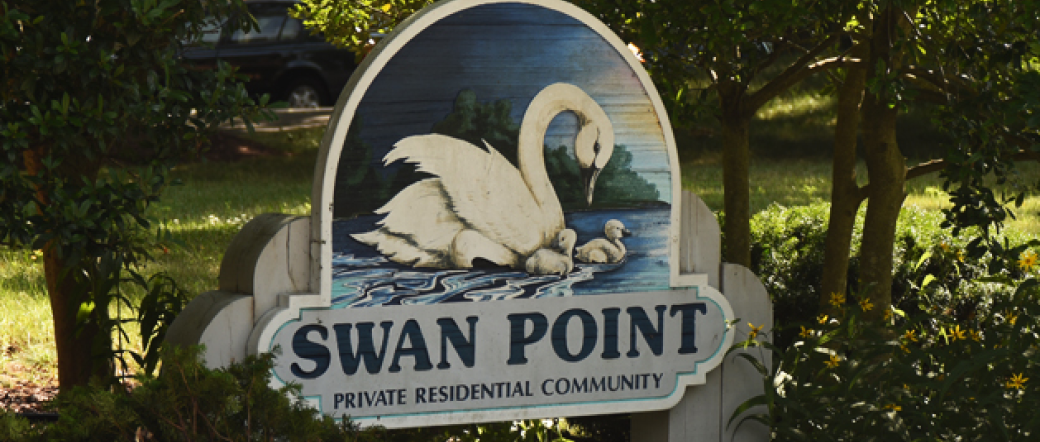
Swan Point HOA
Two SemaConnect EV Charging Stations
These stations are for the exclusive use of Swan Point residents. Residents can contact WPM Management for the user agreement and to obtain the access code needed to use the charging station. View the Swan Point Board Resolution.
View the Swan Point HOA case study.
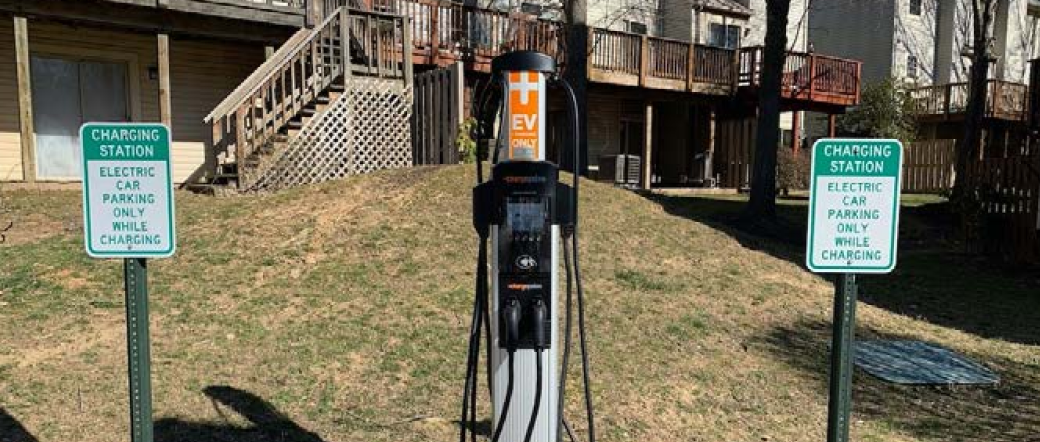
Kingsgate HOA
EV Charging Station
Kingsgate HOA installed an EVSE in a public, community area and participated in completing a case study on their experience.
View the Kingsgate HOA case study for more information on how they installed their first electric charging station.
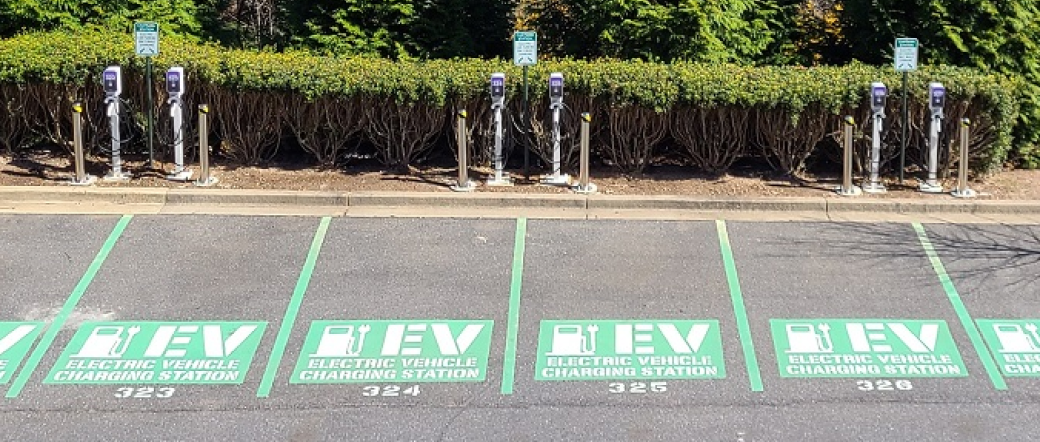
Clarksburg Condominium II
EV Charging Station
In the spring of 2022, the Clarksburg Condominium II community took action to research, gather support for, and install Level 2 EV chargers in their shared parking lot.
View the Clarksburg Condominium II case study.

Multi-Unit Dwellings
Installing charging stations at multi-unit dwellings, such as condos or apartments, helps attract and retain residents. Whether you’re a property owner, manager, homeowner’s association board member or resident, AFDC has a comprehensive multi-unit dwelling guide to charging, parking, electrical services, fees and more.
See how much you can save with state and federal incentives!
Local Government
County Efforts
Anne Arundel
Anne Arundel County launched an initiative to convert county fleet vehicles to all-electric vehicles in the next 15 years.
Baltimore County
In 2021, Baltimore County Executive Olszewski set a goal to convert at least 10 percent of the government’s passenger fleet to electric vehicles by 2030 and install the charging infrastructure necessary to support these vehicles.
The County is also working to incorporate EV charging into new construction and major renovation plans for County facilities, and is working to identify County-owned locations where chargers can be installed.
Additionally, the County is partnering with Baltimore Gas and Electric (BGE) to install electric utility-owned EV chargers at County properties. There are currently 41 charging stations active at 14 locations in the County.
Howard
Howard County pledged to increase workplace EV charging when it signed the “Charge@Work” pledge, a U.S. Department of Energy-funded initiative that helps employers establish and expand workplace charging programs.
The Howard County Live Green website includes a page on EVs that provides resources and education materials on EVs and EVSE.
New home construction in Howard County is required to be EV ready, meaning it must include infrastructure for PEVs. It is one of the first jurisdictions in the United States to require new residential construction with driveways or garages to have electric wiring for EVSE. Similarly, new multi-family dwellings are required to have one EVSE per 25 residential units.
Montgomery
EV infrastructure Plan: summarizes the County’s Department of Transportation’s preparations and actions taken to facilitate the development of EVSE infrastructure in county parking facilities.
The County has introduced regulations governing the installation of privately-owned EVSE in driveways, garages, and public rights of way. The County has a guide for residents installing EVSE that details EVSE permitting and inspection.
The County received new electric buses through the U.S. Department of Transportation’s Low or No Emission Bus Program.
Prince George’s County
The County will receive four new electric buses through the U.S. Department of Transportation’s Low or No Emission Bus Program.
City Efforts
Baltimore
The city is expanding publicly available EVSE infrastructure to facilitate the adoption of EVs. The Baltimore City Parking Authority supports public and government use of EVs and has a webpage linked here where you can find existing and upcoming charger installations, a form to request a new charging location, FAQs, and other info.
Bowie
Has a variety of PHEVs and EVs in their fleet. The Bowie Police Department also purchased electric motorcycles for its patrol fleet.
College Park
Installed EVSE and 85% of its fleet vehicles are hybrids or EVs.
Frederick
The city and its police department are replacing fleet vehicles with hybrid models.
Hyattsville
The police department has the first all-electric police vehicle in the United States in its fleet. They also have an all-electric police motorcycle, hybrid police vehicle, and all-electric segways and golf carts.
Rockville
The City of Rockville adopted a Clean Fleets Resolution on January 10, 2022 and is developing a Community EV Readiness Plan. More information can be found here.
Takoma Park
The City is committed to lowering transportation emissions, and has helped do so by implementing the Car Free Challenge, increasing bike lanes and assisting in the deployment of charging stations for Electric Vehicles around the city. Webpage linked here.
Clean Fuels Technical Assistance
The Clean Fuels Technical Assistance Program is available for local governments to help when considering alternative transportation fuel options. Learn more about the program and how to apply here: https://energy.maryland.gov/transportation/Pages/Clean-Fuels-Technical-Assistance-(CFTA)-Program.aspx
Local Organizations
Electric Vehicle Institute – Offers assistance to organizations implementing EV infrastructure and initiatives.
Electric Vehicle Association of Greater Washington DC (EVADC) – EVADC is an organization of electric vehicle owners, educators and enthusiasts dedicated to promoting the use of EVs. EVADC holds regular monthly meetings, public displays, car shows and tech sessions to exchange information.
Greater Washington Region Clean Cities Coalition (GWRCC) – The GWRCC is a coalition that fosters economic, environmental, and energy security by working locally to advance affordable domestic transportation fuels, energy efficient mobility systems, and other fuel-saving technologies and practices. GWRCC hosts an annual conference and other events including EV showcases, clean transportation expositions, and monthly stakeholder meetings.
GWRCC’s EV Resources page contains helpful EV and EVSE information, including descriptions of different kinds of EVs; the benefits of electric transportation; EV state laws, incentives, and tax credit information; and lists of EV and EVSE vendors, contractors, and other resources.
State of Maryland Clean Cities – Maryland Clean Cities works with vehicle fleets, fuel providers, community leaders, and other stakeholders to save energy and promote the use of domestic fuels and advanced vehicle technologies in transportation.
Maryland Green Registry – Offers tips and resources to help businesses and other organizations set and meet their own goals on the path to sustainability, including EV adoption.
Climate Mayors EV Purchasing Collaborative – The Collaborative works to leverage the buying power of Climate Mayors cities to reduce the costs of EVs and charging infrastructure for all U.S. cities, counties, state governments and public universities, thereby accelerating fleet transitions. The Collaborative also provides training, best practices, educational resources, and analysis support, creating a one-stop shop to support EV transitions for public fleets. Participating Maryland cities/counties: Baltimore, College Park, Greenbelt, Hyattsville, Montgomery County, and Takoma Park.
Annapolis Green – The nonprofit’s Drive Electric efforts provide educational information on EVs and EVSE, and hosts local EV events.
State Efforts
Maryland State Plan for National Electric Vehicle Infrastructure (NEVI) Formula Funding Deployment (NEVI Plan)
The Maryland Department of Transportation (MDOT) and the Maryland Energy Administration (MEA) worked collaboratively with partners and stakeholders to develop the Maryland NEVI Plan. The plan was approved by the Joint Office in 2022, as required by the Bipartisan Infrastructure Law (BIL). Its approval allows Maryland to access National Electric Vehicle Infrastructure (NEVI) formula program funding, which apportions approximately $63 million to Maryland between federal fiscal years (FFY) 2022-2026.
Maryland Zero Emission Vehicle Infrastructure Council (ZEEVIC) – The ZEEVIC is charged with the development of policies, recommendations, and incentives that increase awareness of ZEVs, support the ownership of ZEVs, and promote investment by the private sector in ZEVs; the development of recommendations for a statewide EV charging and hydrogen refueling infrastructure plan; and the development of other potential policies to promote and facilitate the successful integration of ZEVs into Maryland’s transportation network.

